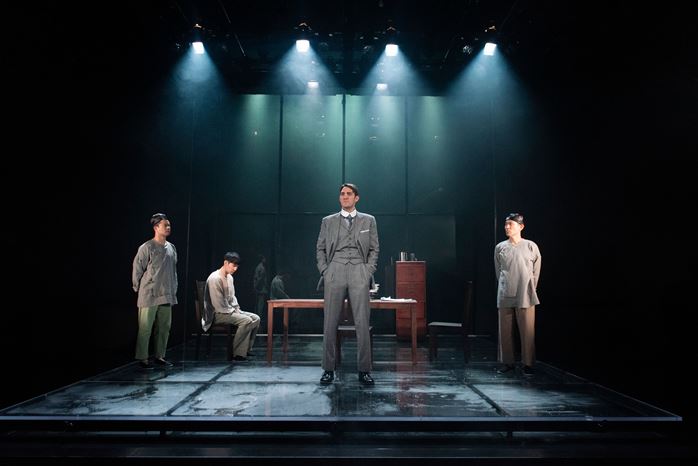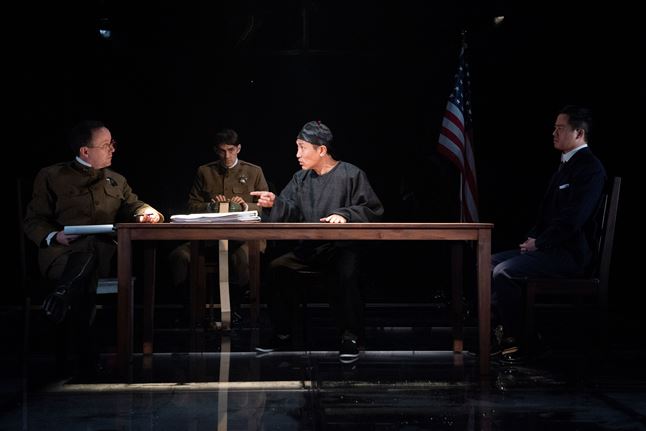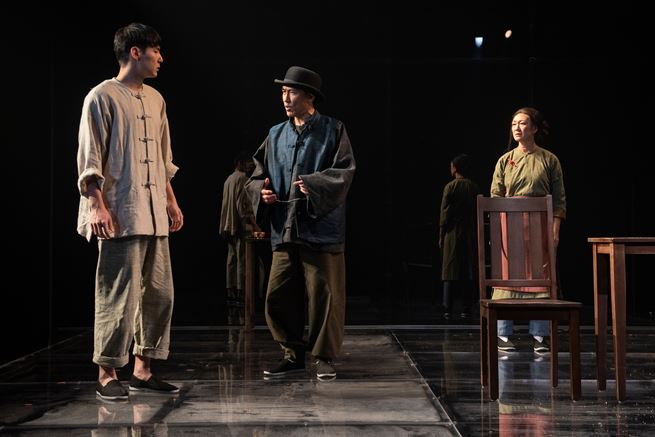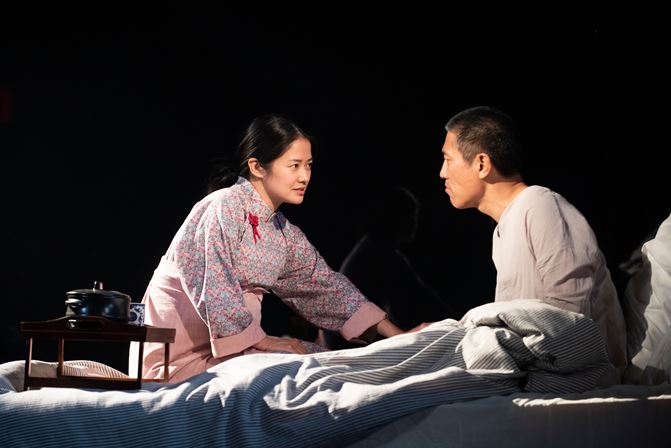On May 6, 1882, the Chinese Exclusion Act – the only federal legislation ever implemented to prohibit all members of a specific nationality or ethnicity from immigrating to the United States – was signed into law by President Chester A. Arthur, following an increase in anti-Chinese sentiment and violence, when US workers blamed their depressed post-Civil-War wages on the immigrant laborers. Initially intended to last for ten years, it was renewed and strengthened in 1892, made permanent in 1902, and remained in force until the passage of the Magnuson Act in 1943, which allowed only 105 Chinese immigrants to enter the US each year, until the 1952 Immigration and Nationality Act abolished racial restrictions.

The personal struggles resulting from the discriminatory law, and the sacrifices made to ensure the dream of a better life for future generations, are the subjects of playwright Lloyd Suh’s The Far Country, commissioned by Atlantic Theater Company and now playing a world-premiere Off-Broadway engagement at the Linda Gross Theater. Beginning in 1909, the narrative moves back and forth from rural Taishan, China, to San Francisco and the Angel Island Immigration Station, where American officials detained and interrogated all arriving Chinese immigrants, then approved or rejected their petitions to enter the US.
Under the direction of Eric Ting, the intergenerational bicontinental drama, based more in words than action, moves at a slow pace to evoke the long, tedious, and grueling process of application, examination, determination, and appeal to which the immigrants were subjected – in the case of the main protagonist Moon Gyet, for a total of seventeen months in detention. It also represents the patience and determination needed to attain the goals of becoming an American citizen, earning enough to enable paying off the debts incurred, sending money back home to family left behind in China, and offering greater opportunities for still-to-come descendants.

The play opens in an interrogation room in a San Francisco office building, for a hearing on the application of Han Sang Gee (the convincingly amusing Jinn S. Kim) – who claims to be a California native but has no documentation to prove it, since all official paperwork was lost in the Great Earthquake of 1906 – to be permitted to return to America after traveling back to China, ostensibly to visit his family. The inquiry, conducted by Chief Inspector Harriwell (an appropriately stern Christopher Liam Moore), with the assistance of his stenographer Clerk Dean (Ben Chase) and Interpreter Yip (Whit K. Lee, maintaining the necessary speed and accuracy in his oral translations of the responses of Gee, who speaks in broken English with a heavy accent that is dropped to indicate a switch to his more fluent Chinese, though still speaking English – a device that is at first unclear), proves to be a battle of wills between the good-natured “funny guy” Gee and the relentless questioning of the no-nonsense Harriwell.
The engaging scene is well-constructed, well-researched, and well-played, and sets the stage for the obstacles faced and the false assertions made in the desperate struggle of Chinese immigrants for American entry and citizenship, as the locale switches to Taishan, where the impoverished mother Low (Amy Kim Waschke, in a commanding and heartbreaking Off-Broadway debut), is entreated by Gee to allow him to take her smart hard-working teenage son Moon (the excellent Eric Yang) back with him to the US as his own, to serve as an indentured laborer in his laundry business.

Moon, who is required to memorize a meticulously detailed backstory invented by Gee, is then, upon arrival, subjected to even more intense multiple interrogations by the Angel Island Immigration Inspector (portrayed with ruthless severity by Chase), answering and re-answering exhaustive questions about his life and childhood that no one could be expected to remember, yet he does, flawlessly, and with complete composure. But the interminable process conjures surreal visions of past immigrants (One and Two, portrayed by Lee and Kim) recounting the journey and walls filled with poetry in a liminal space, which bespeak the anxiety-ridden state of his mind, the inhumanity of his ordeal, and, ultimately, the corruption of the system.
Then the cycle of immigration begins again, with Moon’s brief return to China to see his mother and to find a young woman who will buy his name, accompany him to America, work with him in the laundry, become his family, and get revenge for his sorrow by living with dignity and thriving. He finds her in the self-possessed and forthright Yuen (a heartwarming Shannon Tyo), who seals the deal with the lonely, shy, and nervous Moon. Fast forward to 1930 – a time when the Chinese Exclusion Act was still the law – to her final uplifting expression of the memory, devotion, and gratitude to those who came before and persisted – here represented by Gee – despite all the difficulties and pain, in Suh’s intimate and revealing look at the immigrant experience.

Costumes by Junghyun Georgia Lee, and wigs, hair, and makeup by Tommy Kurzman, clearly distinguish between the Chinese and American characters, their positions, and classes. The scenic design by Clint Ramos is cold, stark, and minimal, with dramatic changes in lighting by Jiyoun Chang and sound by Fan Zhang that signal the shifts in date and locale, and removal from everyday reality. Though some of the transitions are confusing, the actors deliver the overarching message of triumphing over adversity and bigotry with steadfast endurance and an eye on the long-term, in a play that still resonates in our divisive times, with the shocking rise in anti-Asian hate-crimes and the ongoing battle against immigration – on which our diverse melting-pot nation was built.
Running Time: Approximately one hour and 50 minutes, including an intermission.
The Far Country plays through Sunday, January 1, 2023, at Atlantic Theater Company, performing at the Linda Gross Theater, 336 West 20th Street, NYC. For tickets priced at $87-107, including fees), go online. Masks are required in the building.





